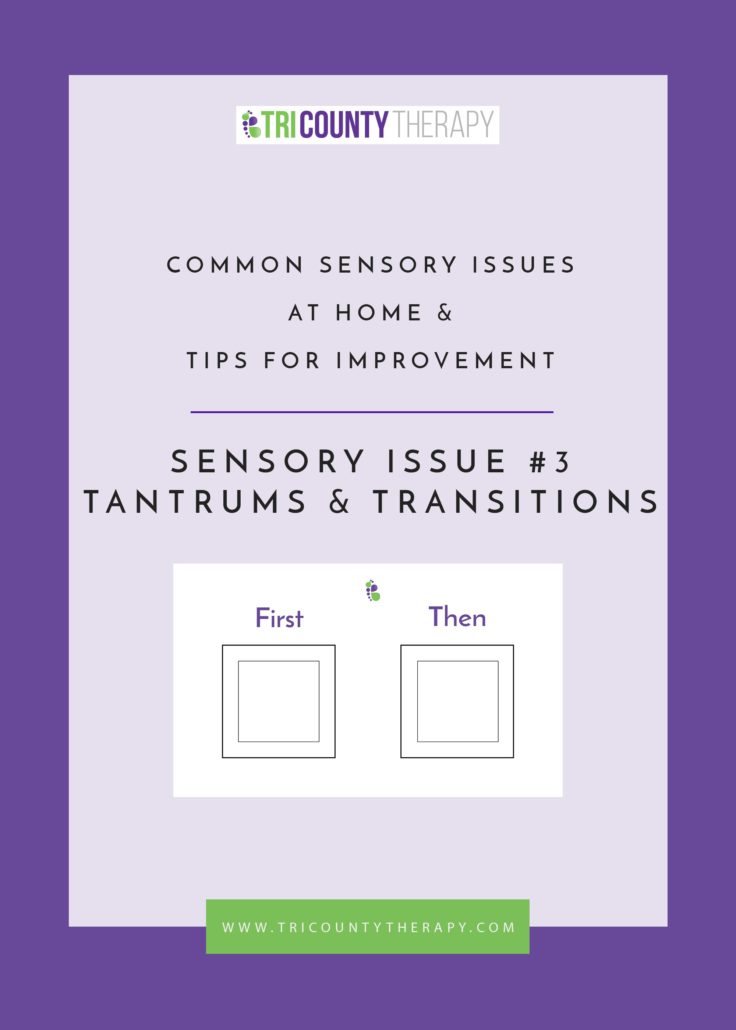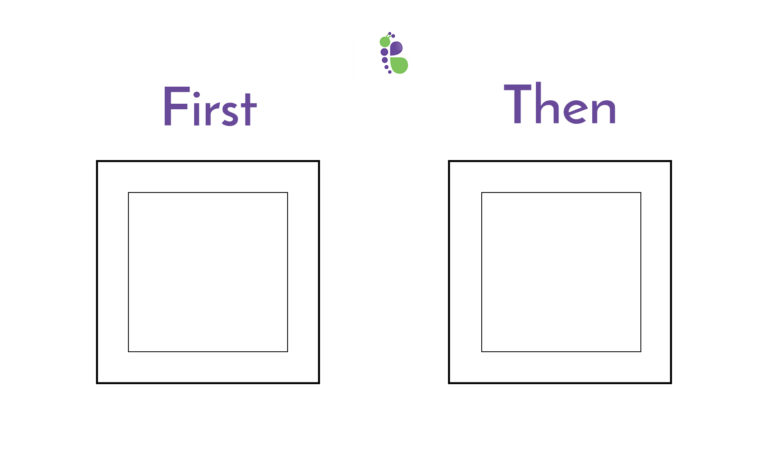Sensory Issue Three: Tantrums & Transitions

(Scroll down for tips on video)
Transitions and change can be very difficult on your child, and they occur constantly throughout the day, wreaking havoc on your ability to take your child shopping, daycare, or anywhere new. Outbursts and tantrums may happen more often than not, making you not want to ever leave your house! Here are a few tips to try to limit your child’s anxiety and alleviate the stress of transitions.
Tip #1- Give a ‘heads-up’ of Upcoming Transitions
Giving your child notice of what’s going to happen, and when, can be very reassuring. Using strategies such as using a verbal countdown, “okay, we are going to clean up this activity in 5 minutes” or “After you do your homework, it will time for your bath.” This allows your child to prepare for what comes next. You may need to begin with verbal prompts 30 minutes or more before the anticipated transition, and then provide reminders every 5 minutes until it is time to move on to the next task or activity. You can also use a “First, Then” visual; let your child know that, “first, you will finish your homework, then you will get a bath.” This provides your child with small, manageable steps!

Tip #2 – Use Timers
Try using a timer to help your child know when it’s time to stop an activity or indicate that it is time to go. You can set a visual timer if your child can not yet tell time or does not respond to a clock, use a sand timer from a board game, or a countdown app found on a smart phone or tablet. Timers can give your child a visual and/or auditory indication that it is time to leave one activity or place and move on to the next!

Tip #3- Use a Picture Schedule
Using a visual schedule can help your child better understand what to expect. A great visual schedule for beginners is a “First/Then” picture schedule. You can either have a picture, or you can write it for her, of what the child needs to do first (such as homework, clean room) and then what she earns when that’s complete (such as the iPad, tv time, etc.). This provides your child with a simple representation of expectations. You can also use a picture schedule to help him see multiple activities that will occur, such as “breakfast, go to preschool, mom picks you up, dinner, bath, bed.” The child can cross off each activity as it is completed and see what’s next!

Written by: Amy Elgin, MSOL, OTR/L, BCP

